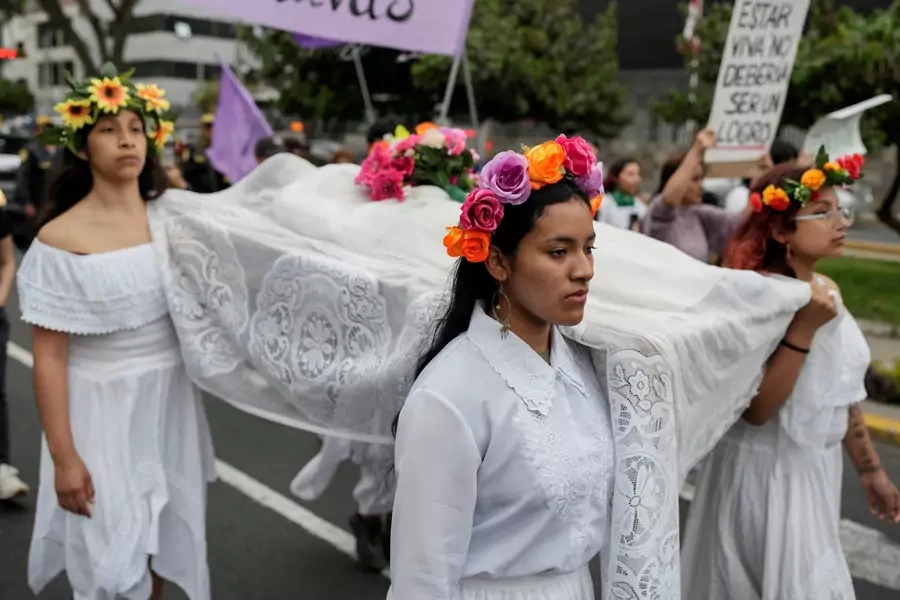Women This Week: Gender Based-Violence Escalating in Peru

Concern in Peru From Rise in Femicides
Peru is experiencing a gender-based violence crisis. Public officials have documented at least 51 femicide cases since January, a number likely to outpace the 137 recorded last year. In March alone, a woman was killed every three days. According to the Ministry of Women and Vulnerable Populations, there were 21,194 reported cases of violence against women and girls in January and February, with girls between the ages of 12-17 accounting for 16 percent of the cases. A national poll revealed that less than 30 percent of women report incidents of gender-based violence, indicating that the real figure is likely much higher. While gender-rights activists are working to implement more robust prevention measures, harsher sentencing, and meaningful education reform, they are confronting societal and institutional barriers that reflect a conservative stance toward women, violence, and reproductive health. “Through our pain, we're rising up,” said Magali Águilar, whose 19-year-old daughter, Sheyla, was killed by her ex-boyfriend in 2018. “When we're together, we cry when we need to, and then we dry our tears and keep fighting so that there isn't another Sheyla. So that this story doesn't keep repeating.”
Afghan Women Soldiers Request U.S. Immigration Status
Afghan women who served in the Afghan National Army's Female Tactical Platoon alongside the United States military are seeking help from Congress to secure legal immigration status, meeting with members from both parties this week. These women accompanied U.S. Special Operations forces on dangerous missions targeting Islamic State combatants and facilitating the release of captives held in Taliban jails. In August, the U.S.'s two-year humanitarian parole will expire, leaving about 82,000 Afghan immigrants jobless and without legal protections to remain in the United States. Senator Amy Klobuchar (D-MA) is spearheading efforts to revise the Afghan Adjustment Act, legislation that would ensure that Afghans who assisted the American mission are eligible for Special Immigrant Visas. Representative Greg Stanton (D-AZ) is pursuing a separate track by imploring the Department of Homeland Security to grant these women asylum. In a letter to Department of Homeland Security Secretary Alejandro Mayorkas, he wrote, “I am concerned that this group of courageous women is receiving disparate treatment from your department,” noting that “many male Afghan soldiers, including pilots, have received their asylum within the 180-day time period.”
Europe Unable to Broadcast Women’s World Cup After Under-bidding
More on:
The Fédération Internationale de Football (FIFA) is threatening a TV blackout for the Women's World Cup after deeming offers for television rights from the "Big 5" European countries as “disappointing” and a “slap in the face” to the players and women around the world. FIFA president Gianni Infantino has committed to growing the women’s game by extending the event to 32 teams, increasing the prize money to $150 million—a fivefold increase from the previous tournament—and pledging to equalize it with the men’s tournament by 2027. He rejected bids by England, France, Germany, Italy, and Spain which only offered between $1-10 million for the rights, compared to the $100-200 million offered for rights to the men's World Cup. The broadcasting companies are defending their cautious bidding by highlighting the time difference between Europe and New Zealand, where the games will be held this July, as well as the fact that this is the first time FIFA has decoupled the women’s games from the men’s. Still, Infantino is standing by his belief in “fair remuneration of women’s football” and FIFA’s “moral and legal obligation not to undersell the FIFA Women's World Cup.” 1.12 billion viewers watched the 2019 Women's World Cup in France.
More on:
 Online Store
Online Store